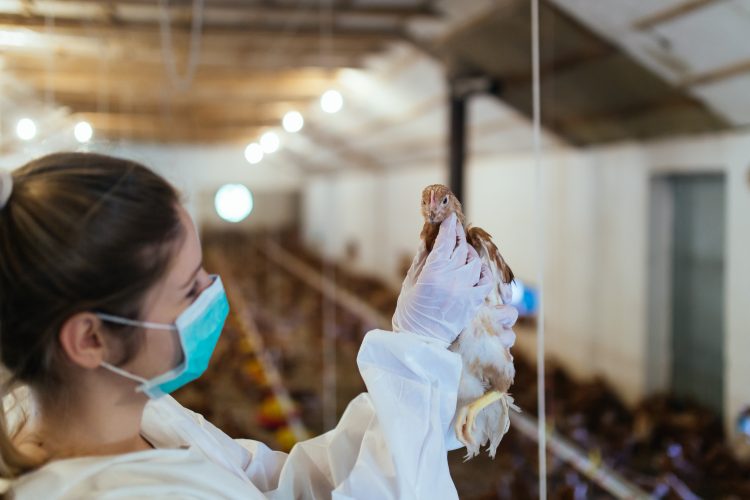Avian influenza discovered in poultry in Pembrokeshire
- Like
- Digg
- Del
- Tumblr
- VKontakte
- Buffer
- Love This
- Odnoklassniki
- Meneame
- Blogger
- Amazon
- Yahoo Mail
- Gmail
- AOL
- Newsvine
- HackerNews
- Evernote
- MySpace
- Mail.ru
- Viadeo
- Line
- Comments
- Yummly
- SMS
- Viber
- Telegram
- Subscribe
- Skype
- Facebook Messenger
- Kakao
- LiveJournal
- Yammer
- Edgar
- Fintel
- Mix
- Instapaper
- Copy Link
Posted: 12 September 2022 | Grace Galler (New Food) | No comments yet
Avian influenza (bird flu) has been found in poultry at a large site in Pembrokeshire, marking the second confirmed case of the pathogenic disease in Wales this week.


Avian influenza – or bird flu as it’s commonly known – has been discovered in poultry at a large Pembrokeshire site in Wales, according to the region’s Chief Veterinary Officer, Christianne Glossop.
The highly pathogenic disease occurs mainly in birds and is highly contagious. It can be deadly to all birds, particularly among domestic poultry. There are a variety of bird flu strains and some have been known to ‘hop’ from birds to humans. A few human deaths have also been recorded as a result of bird flu, but this is very rare.
To limit the risk of the virus spreading, a 3km protection zone and 10km surveillance zone has been declared around the infected premises.
Bird movements and gatherings have been restricted and all holdings that keep birds must be declared. The measures are significantly stricter in the 3km protection zone.
The Welsh Government has declared it is vital that bird keepers remain vigilant and ensure that they have the highest levels of biosecurity in place.
Importantly, UK health agencies have stated that the risk to public health from the virus is very low.
To all of those who possess birds, the responsibilities are as follows:
- All keepers of kept birds should be vigilant for signs of the disease such as increased mortality, respiratory distress and drops in food or water intake, or egg production
- Consult your veterinary surgeon in the first instance if your birds are unwell
- If you or your vet suspect that avian influenza could be causing illness in your birds, you must, by law, report this to the Animal and Plant Health Agency (APHA). This will trigger a disease investigation by APHA vets
- You must apply strict biosecurity measures to prevent any materials, equipment, vehicles, clothing, feed or bedding that could have been contaminated from wild birds coming onto your premises. Full details and checklist are available here.
Related topics
Contaminants, Environment, Food Safety, Outbreaks & product recalls









